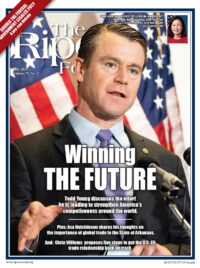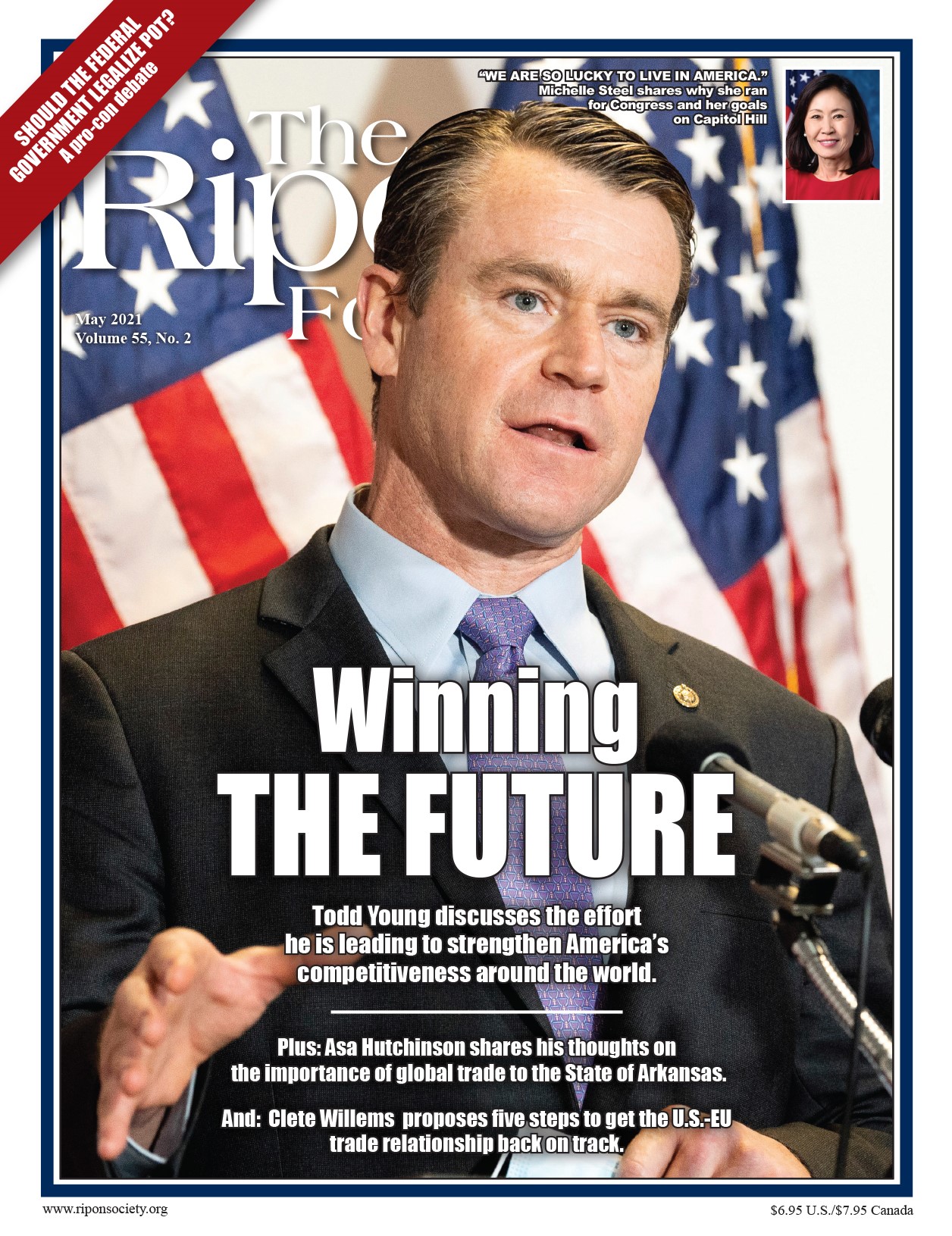If there was ever a loaded term in American politics, it is the term that has been used to describe U.S. foreign policy over the past four years — America First. To some, it means America going it alone in international affairs — not being the world’s policemen sending our troops around the globe, and not being the world’s bank bailing other countries out.
Others define America First as the United States continuing to lead by the power of its example — being at the front of the line when it comes to standing up for freedom and justice and being a beacon of hope, and a refuge, for those who are being oppressed. Former Director of National Intelligence Dan Coats expanded on this definition in an interview with The Ripon Forum a few years back.
“The old America First once attached to pre-war isolationism has led many to misinterpret the concept now relevant to the modern world,” Coats explained. “Isolationism was rejected back then as an irresponsible dream. Since then, American foreign policy has always been centered on American national interests, but as properly defined and accurately understood. Our core national interests — peace, prosperity, security — have always included nurturing everywhere our core values. Extending benefits of freedom, democracy, human rights, and free enterprise to others has always served our national interests. This is the real America First.”
In addition to serving as DNI in the Trump Administration, Coats also spent nearly two decades serving as U.S. Senator from the State of Indiana. Today, Coats’ successor on Capitol Hill, U.S. Senator Todd Young, is promoting much the same vision of America First that Coats’ once embraced. In this edition of the Forum, we shine a light on Young’s efforts in this regard and, more specifically, his work to ensure that America remains first in the world when it comes to science and technology.
“Today, our leadership is being challenged by a state capitalist regime in Beijing that threatens to win the next century by dominating the critical technologies that are bound to shape it,” Young writes. “The country that wins the race in key technologies — such as artificial intelligence, quantum computing, advanced communications, biotechnology, and more — will be the superpower of the future.” Young has authored legislation called the Endless Frontiers Act to help the U.S. achieve this goal. He writes about the bill in this latest edition and explains why he believes being first in the race in science and technology is key to winning the future.
To the extent that the Young/Coats vision of America First requires America to be reengaged, this edition of the Forum also examines two areas where that can be achieved. In the first essay, Clete Willems, who served as Deputy Assistant to President Trump for International Economics, looks at the importance of the U.S.-EU trade relationship and proposes five steps to getting the relationship back on track. In the second essay, Anthony Kim and Terry Miller of the Heritage Foundation look at the Special Relationship between the United States and the United Kingdom and explain why a trade agreement between the longtime friends should be a top priority.
In other essays, Mark Linscott of the Atlantic Council examines the performance of the World Trade Organization and writes that 2021 could be a year of reform or irrelevance for the global intergovernmental group. And at a time when some Americans still believe the U.S. should turn inward and close its doors to the world, Governor Asa Hutchinson explains what trade means to his state, pointing out, among other things, that over 350,000 jobs in Arkansas are dependent upon access to and interactions with global markets.
With shortages of personal protective equipment and other pandemic-related supplies still fresh in the minds of many Americans, Nick Vyas, who serves as Executive Director of the University of Southern California’s Center for Global Supply Chain Management, looks at ways to strengthen global supply chains in the wake of COVID-19. Sarah Lawrence College Professor Samuel Abrams examines the fallout from cancel culture, while Kevin Sabet and Paul Armentano debate when pot should be legalized in the United States. And in our latest Ripon Profile, first-term Congresswoman Michelle Steel shares why she ran for Congress and her goals on Capitol Hill
As always, we hope you enjoy this latest edition of The Ripon Forum, and welcome any thoughts or comments you may have.
Lou Zickar
Editor of The Ripon Forum
louzickar@clu.ccw.mybluehost.me





